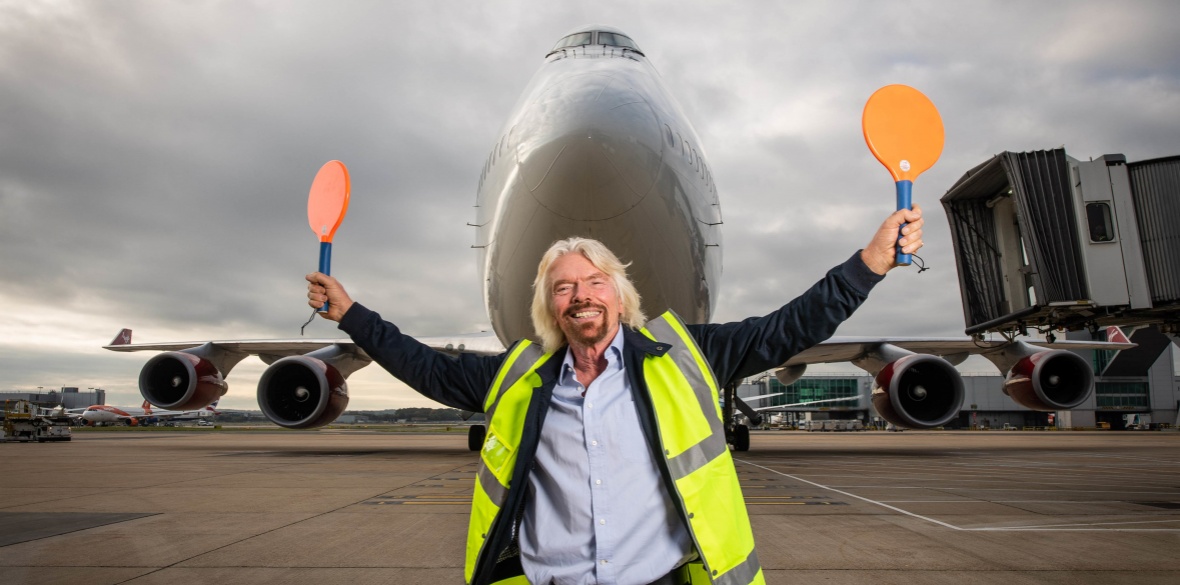RICHARD BRANSON will hope that the sight of Virgin Australia going under will spook the British government into coughing up to save Virgin Atlantic.
His pleas for a bailout see him accused of hypocrisy — and not for the first time.
Just three months ago, when regional airline Flybe — recently incorporated into the Virgin group — was rescued, critics pointed out that Branson had denounced such state aid when it was being considered for British Airways.
“Loss-making and inefficient airlines should go to the wall,” the free-market champion sneered.
Cut-throat capitalists eager to monopolise markets aren’t known for their solidarity.
Flybe’s short-lived rescue (it soon went bust anyway) sparked fury from BA and Ryanair.
Down Under, market leader Qantas has publicly lobbied against any help for Virgin Australia.
Unlike bosses gloating over the corpse of a rival, socialists will be aware that Branson, whose staggering riches are emphasised by his offer to put up a private island as security for a state loan, would not be the hardest hit by Virgin’s collapse. Staff losing their livelihoods would be the real victims.
Yet there is no reason why the public should be saddled with the cost of rescuing a privately owned airline if it returns to business as usual afterwards — generating profits for shareholders while holding down pay and forming part of a powerful aviation lobby resisting action to address climate change.
Especially since Branson, who owns 51 per cent of Virgin Atlantic, is a tax exile who has proved unscrupulous enough in the past to sue the NHS when it declines to award him contracts.
The last great economic crisis, the bankers’ crash of 2007-8, looks set to be dwarfed by the fallout from Covid-19. All the more important that we learn the right lessons from it.
Gordon Brown’s government was unfairly blamed by the Tories for the public debt we took on to bail out the banks.
The consequences of not doing so for millions of ordinary people would have been grim. But it is absolutely right to point to its failure to do anything useful with the huge public stakes in major banks it obtained in the process.
Despite widespread appreciation of the fact that the crash was caused by reckless gambling and irresponsible lending by banks, encouraged by astronomical pay and bonuses awarded to top traders based on short-term profit, the banks continued to be run as private companies despite government shareholdings.
Ministers didn’t even stop bankers awarding themselves obscene salaries, let alone start directing lending towards publicly useful outcomes rather than an overinflated property market.
Anger at an elite that continued to reward itself while punishing us for rescuing it — by making us pay for its bailout with public spending and pay cuts — helped fuel the revived socialist movement led by Jeremy Corbyn from 2015.
The injustice and unsustainable nature of modern capitalism is clearer still today.
We should not bail out Branson on his terms. The case for public ownership of the entire aviation industry is compelling, protecting its workforce and capital through crisis while enabling its management to be reoriented to the public good, including with reference to environmental sustainability.
Neither the Tory government nor the new leadership of the Labour Party are likely to embrace that case.
In Brazil, communists faced with a government refusing to address the crisis are calling for a “national salvation front” of trade unions, political parties, and community and social justice campaigns to mobilise grassroots responses to protect life but also to pile on pressure for a different future.
The exact form such a movement would take cannot be prescribed in advance. It needs to grow from existing co-operation between unions, their reps and campaigners, mutual aid groups, socialist activists and foodbank volunteers. It might be spearheaded by the People’s Assembly or the TUC’s campaign for a new deal.
But we should be no less ambitious.










